Cumulus Announces Chapter 11 Pre-Pack to Eliminate $600 Million in Debt
In a surprise announcement this morning (3/5), Cumulus Media Inc reveals it has entered into a comprehensive restructuring support agreement (RSA) with a group of its lenders to eliminate approximately $600 million of debt, “substantially deleveraging its balance sheet and enhancing its ability to execute on strategic priorities.” The company says it will continue operating in the ordinary course throughout the process, with no impact to employees, partners, or listeners.
$600 million of debt, “substantially deleveraging its balance sheet and enhancing its ability to execute on strategic priorities.” The company says it will continue operating in the ordinary course throughout the process, with no impact to employees, partners, or listeners.
Cumulus president and CEO Mary G. Berner states, “While we have outperformed the market on many of our most important metrics, including share gains in both local and digital revenue, the broader 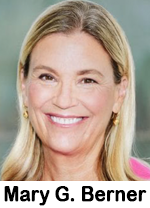 macroeconomic and industry-wide pressures we have faced have remained unrelenting. Against that backdrop, it became clear that Cumulus’s remaining debt burden limited our ability to fully realize the company’s potential, and this agreement represents a major step forward. The prepackaged process is intended to address the company’s debt efficiently with no disruption to our operations, our people, and our strategies. On emergence, a stronger financial foundation will better position Cumulus to continue investing in premium content, enriched audience experiences, advertiser performance enhancements, and the ongoing growth of our digital marketing offerings.” Cumulus has filed a proposed Plan of Reorganization that incorporates the terms of the RSA and is subject to approval by the Court. The requisite majority of debtholders committed to vote in favor of the Plan, which calls for the cancellation of 100% of the company’s existing funded indebtedness in exchange for 100% of the company’s reorganized equity and $50 million of new convertible notes, as well as the amendment and restatement of the company’s asset-based revolving credit facility to provide continued liquidity. Cumulus expects that the Court will hold a hearing to consider the approval of the Plan within 60 days of the filing date and that the company will emerge from bankruptcy following receipt of required regulatory approvals from the Federal Communications Commission.
macroeconomic and industry-wide pressures we have faced have remained unrelenting. Against that backdrop, it became clear that Cumulus’s remaining debt burden limited our ability to fully realize the company’s potential, and this agreement represents a major step forward. The prepackaged process is intended to address the company’s debt efficiently with no disruption to our operations, our people, and our strategies. On emergence, a stronger financial foundation will better position Cumulus to continue investing in premium content, enriched audience experiences, advertiser performance enhancements, and the ongoing growth of our digital marketing offerings.” Cumulus has filed a proposed Plan of Reorganization that incorporates the terms of the RSA and is subject to approval by the Court. The requisite majority of debtholders committed to vote in favor of the Plan, which calls for the cancellation of 100% of the company’s existing funded indebtedness in exchange for 100% of the company’s reorganized equity and $50 million of new convertible notes, as well as the amendment and restatement of the company’s asset-based revolving credit facility to provide continued liquidity. Cumulus expects that the Court will hold a hearing to consider the approval of the Plan within 60 days of the filing date and that the company will emerge from bankruptcy following receipt of required regulatory approvals from the Federal Communications Commission.



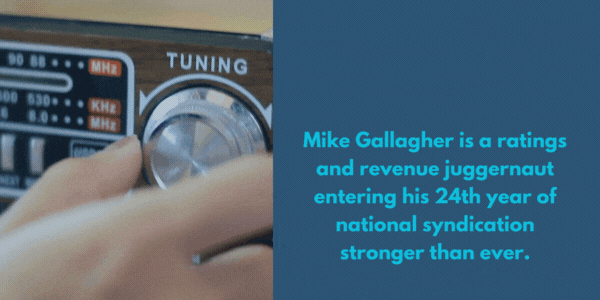
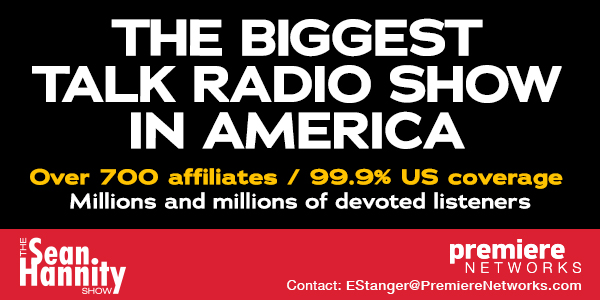
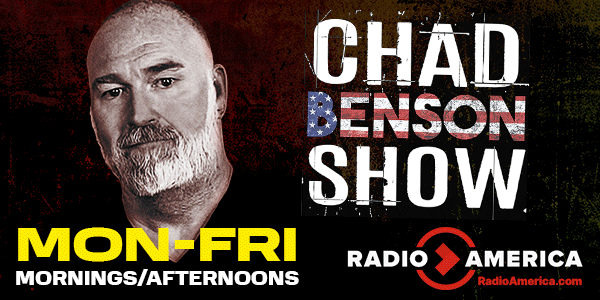
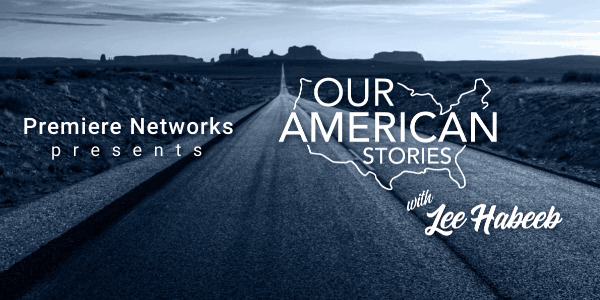
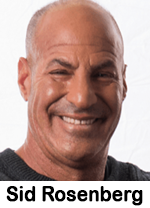 Mayor Zohran Mamdani an “America hating, Jew hating, Radical Islam cockroach running our once beautiful city.” He also addressed President Trump, asking him to “stop complimenting the mayor.” Rosenberg removed the post and stated, “To the mayor, and anyone else that I offended with my tweet on Saturday, I send out a heartfelt apology,”
Mayor Zohran Mamdani an “America hating, Jew hating, Radical Islam cockroach running our once beautiful city.” He also addressed President Trump, asking him to “stop complimenting the mayor.” Rosenberg removed the post and stated, “To the mayor, and anyone else that I offended with my tweet on Saturday, I send out a heartfelt apology,”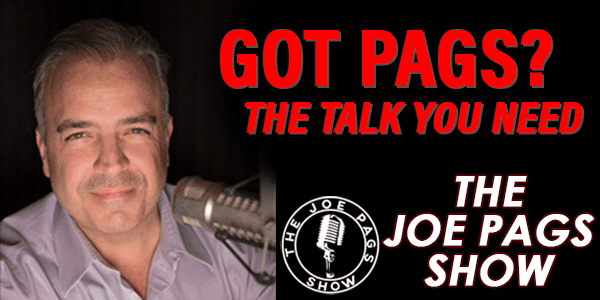


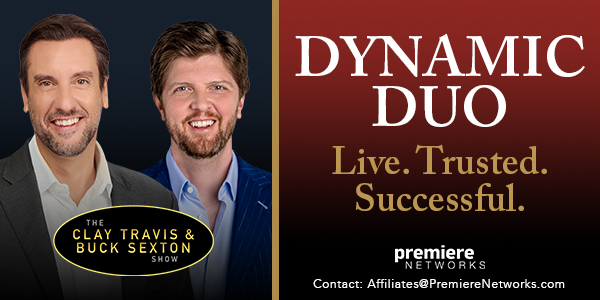
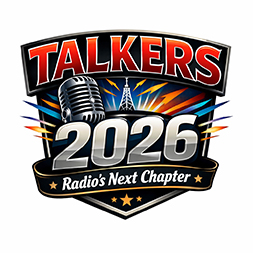 out. The power-packed, one-day agenda is being organized and designed to address the field of talk media’s most pressing and existential issues. TALKERS publisher Michael Harrison states, “This important conference will illuminate the forward path of the expanding talk media universe, including all aspects of digital communications from AI and podcasting to streaming networks. As has been its tradition, this latest TALKERS conference will approach the onrushing future of the talk business from a radio perspective. This crucial gathering will cover the new undeniable realities of the radio business for those who not only want to survive but thrive as well. It will be about opportunities, networking, and entrepreneurism for individuals in talent, programming, sales, marketing, and management who are serious about staying in the game.”
out. The power-packed, one-day agenda is being organized and designed to address the field of talk media’s most pressing and existential issues. TALKERS publisher Michael Harrison states, “This important conference will illuminate the forward path of the expanding talk media universe, including all aspects of digital communications from AI and podcasting to streaming networks. As has been its tradition, this latest TALKERS conference will approach the onrushing future of the talk business from a radio perspective. This crucial gathering will cover the new undeniable realities of the radio business for those who not only want to survive but thrive as well. It will be about opportunities, networking, and entrepreneurism for individuals in talent, programming, sales, marketing, and management who are serious about staying in the game.”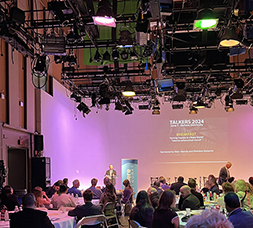 News/talk, sports talk, all-news, and general talk will be amply covered. There will be over 50 top industry speakers, and registration is limited to insure intimacy. Attendance at the conference is only open to members of the working media and directly associated industries as well as students enrolled in accredited learning institutions. All attendees will be required to register in advance on the phone payable by credit card. Because attendance will be limited, the conference is again expected to be an early sellout. The all-inclusive registration fee covering convention events, exhibits, food, and services for the day is $260. However, attendees can take advantage of the early bird fee of $150 available until 5:00 pm ET on Friday, April 3. All registrations are non-refundable. This power-packed, one-day event is being presented in association with Hofstra’s multi-award-winning station, WRHU Radio and the school’s Lawrence Herbert School of Communication.
News/talk, sports talk, all-news, and general talk will be amply covered. There will be over 50 top industry speakers, and registration is limited to insure intimacy. Attendance at the conference is only open to members of the working media and directly associated industries as well as students enrolled in accredited learning institutions. All attendees will be required to register in advance on the phone payable by credit card. Because attendance will be limited, the conference is again expected to be an early sellout. The all-inclusive registration fee covering convention events, exhibits, food, and services for the day is $260. However, attendees can take advantage of the early bird fee of $150 available until 5:00 pm ET on Friday, April 3. All registrations are non-refundable. This power-packed, one-day event is being presented in association with Hofstra’s multi-award-winning station, WRHU Radio and the school’s Lawrence Herbert School of Communication.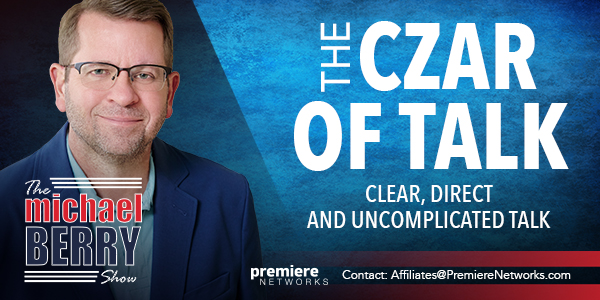
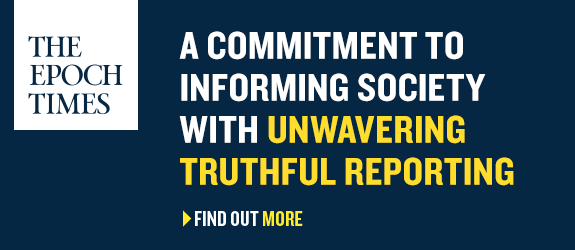
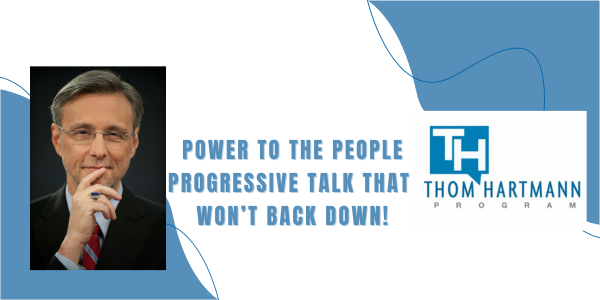
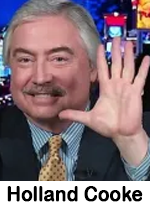 Unless you live in Hawaii and Arizona (except the Navajo Nation) or American Samoa, Guam, the Northern Mariana Islands, Puerto Rico and the U.S. Virgin Islands, your clocks will change when we “Spring Forward” on Sunday 3/8.
Unless you live in Hawaii and Arizona (except the Navajo Nation) or American Samoa, Guam, the Northern Mariana Islands, Puerto Rico and the U.S. Virgin Islands, your clocks will change when we “Spring Forward” on Sunday 3/8.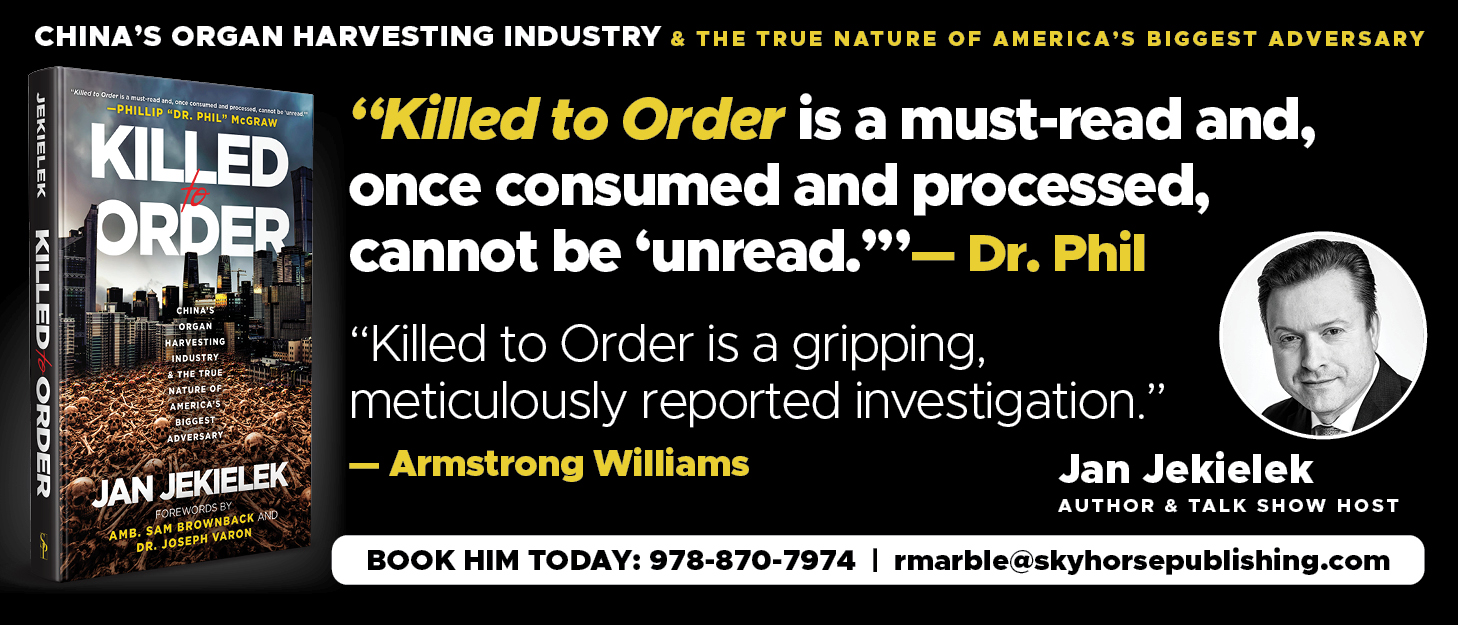

 Talk radio has a long incredibly successful run of shows about sex.
Talk radio has a long incredibly successful run of shows about sex.
 among adults has surged from just 6% of audio listening in 2015 to 23% in 2025. The two factors responsible for his are new people listening to podcasts (reach) and existing podcast consumers listening more (frequency). Das says that additional listening is replacing other behaviors. “Nearly four in 10 podcast listeners say the time they spend with podcasts is replacing time spent scrolling social media. Another 34% say it’s replacing time spent listening to streaming music.” Das cites data indicating that “U.S. adults spend an average of 103 minutes per day listening to podcasts, outpacing TikTok (77 minutes), Facebook (69 minutes), and Instagram (65 minutes); and “Podcast listening surpassed streaming music in 2023, and now commands an 11 point share advantage in daily digital ad-supported audio listening.”
among adults has surged from just 6% of audio listening in 2015 to 23% in 2025. The two factors responsible for his are new people listening to podcasts (reach) and existing podcast consumers listening more (frequency). Das says that additional listening is replacing other behaviors. “Nearly four in 10 podcast listeners say the time they spend with podcasts is replacing time spent scrolling social media. Another 34% say it’s replacing time spent listening to streaming music.” Das cites data indicating that “U.S. adults spend an average of 103 minutes per day listening to podcasts, outpacing TikTok (77 minutes), Facebook (69 minutes), and Instagram (65 minutes); and “Podcast listening surpassed streaming music in 2023, and now commands an 11 point share advantage in daily digital ad-supported audio listening.” 
 breathe talk radio? We’re looking for a program director to lead our talk radio stations to the next level.
breathe talk radio? We’re looking for a program director to lead our talk radio stations to the next level.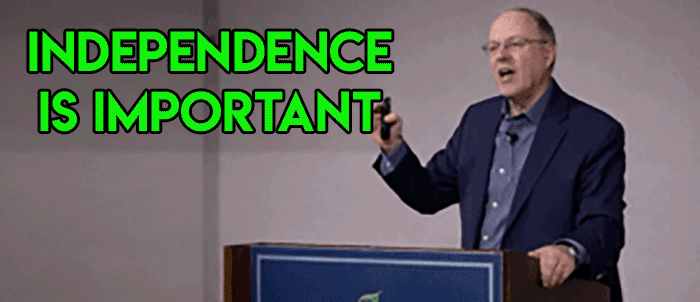

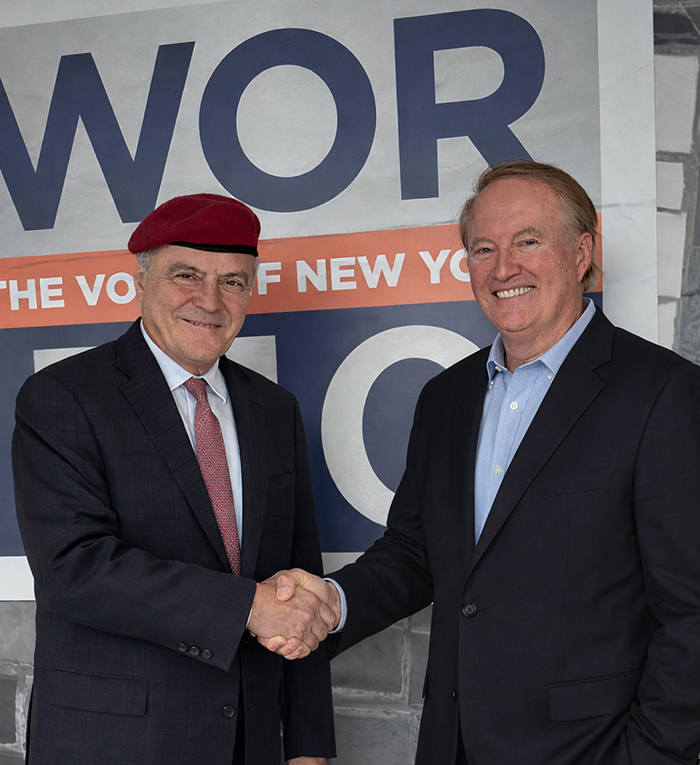

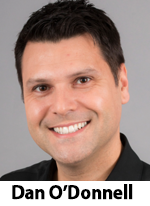 Leader of Minnesota. We will be greeted as liberators. Death to fraud investigations!” Via social media, O’Donnell posted: “I want to take a moment to offer my sincerest apologies for a post I made about Minnesota’s Governor that, quite frankly, I am deeply ashamed of. It was irresponsible and completely inappropriate and I have since taken it down. It served only to deepen divisions at a time when unity and basic human decency are most needed. My primary responsibility as a broadcaster, a father, and a person is to always comport myself professionally, appropriately, and compassionately, and I failed to do that. Again, I am truly, deeply, unequivocally sorry.”
Leader of Minnesota. We will be greeted as liberators. Death to fraud investigations!” Via social media, O’Donnell posted: “I want to take a moment to offer my sincerest apologies for a post I made about Minnesota’s Governor that, quite frankly, I am deeply ashamed of. It was irresponsible and completely inappropriate and I have since taken it down. It served only to deepen divisions at a time when unity and basic human decency are most needed. My primary responsibility as a broadcaster, a father, and a person is to always comport myself professionally, appropriately, and compassionately, and I failed to do that. Again, I am truly, deeply, unequivocally sorry.” 
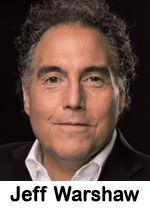 Management’s Michael Del Nin in 2022 and began working together “to try to acquiring Cox Radio, with Del Nin agreeing that Warshaw would manage the business as CEO upon successful acquisition.” While both parties were doing due diligence on the CMG deal, Warshaw learned that an Audacy majority stake holder was willing to sell its stake in the company. Warshaw says he steered SFM and Del Nin to the deal that made SFM a majority stake holder of the new Audacy in early 2024. Warshaw alleges he was promised he’d be the next CEO of Audacy or that he would get 5% of SFM’s profits from the Audacy acquisition. Later, SFM filed a motion to strike arguing that talks between Del Nin and Warshaw did not rise to the level of an employment offer. In his recent filing with the court, Warshaw says SFM reads “the Complaint in the light least favorable to Plaintiff. And they introduce new facts and make factual arguments that must be left for resolution by a jury at trial. Even so, based on the Complaint’s detailed allegations, Defendants’ arguments fall apart. Defendants ask the Court to believe that Jeffrey Warshaw, a veteran executive and dealmaker in radio, attempted to ‘cozy up’ to Defendants, newcomers to radio. But why did they seek an introduction to Warshaw in the first place? Why did they need Warshaw to source the Audacy transaction, and quickly ask him to introduce them to Audacy’s controlling debtholder? Why did Michael Del Nin call Warshaw 107 times between October 2023 and October 2024? On breach of contract, Defendants argue that the Complaint does not plead definite and certain terms of the contract between Warshaw and SFM. That ignores the definiteness of the contract terms alleged, as well as controlling precedent holding that an oral agreement is enforceable so long as missing terms can be ascertained by fair implication or industry custom. Defendants also downplay the value of Warshaw’s sourcing of the Audacy deal and his introduction of Defendants to the firm holding a controlling interest in Audacy debt.”
Management’s Michael Del Nin in 2022 and began working together “to try to acquiring Cox Radio, with Del Nin agreeing that Warshaw would manage the business as CEO upon successful acquisition.” While both parties were doing due diligence on the CMG deal, Warshaw learned that an Audacy majority stake holder was willing to sell its stake in the company. Warshaw says he steered SFM and Del Nin to the deal that made SFM a majority stake holder of the new Audacy in early 2024. Warshaw alleges he was promised he’d be the next CEO of Audacy or that he would get 5% of SFM’s profits from the Audacy acquisition. Later, SFM filed a motion to strike arguing that talks between Del Nin and Warshaw did not rise to the level of an employment offer. In his recent filing with the court, Warshaw says SFM reads “the Complaint in the light least favorable to Plaintiff. And they introduce new facts and make factual arguments that must be left for resolution by a jury at trial. Even so, based on the Complaint’s detailed allegations, Defendants’ arguments fall apart. Defendants ask the Court to believe that Jeffrey Warshaw, a veteran executive and dealmaker in radio, attempted to ‘cozy up’ to Defendants, newcomers to radio. But why did they seek an introduction to Warshaw in the first place? Why did they need Warshaw to source the Audacy transaction, and quickly ask him to introduce them to Audacy’s controlling debtholder? Why did Michael Del Nin call Warshaw 107 times between October 2023 and October 2024? On breach of contract, Defendants argue that the Complaint does not plead definite and certain terms of the contract between Warshaw and SFM. That ignores the definiteness of the contract terms alleged, as well as controlling precedent holding that an oral agreement is enforceable so long as missing terms can be ascertained by fair implication or industry custom. Defendants also downplay the value of Warshaw’s sourcing of the Audacy deal and his introduction of Defendants to the firm holding a controlling interest in Audacy debt.”
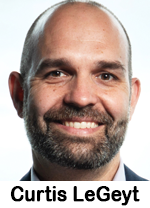 field with global technology platforms.” He underscored broadcasters’ unique and essential role in public safety, civic engagement and strengthening local democracy. Additionally, broadcasters heard from key policymakers shaping broadcast policy, including Sen. Ed Markey (D-MA), who spoke about the enduring value of broadcast radio and his leadership on the bipartisan effort to pass the AM Radio for Every Vehicle Act… and U.S. Rep. Richard Hudson (R-NC), chairman of the House Energy and Commerce Subcommittee on Communications and Technology, who spoke about the need for broadcast ownership rules to reflect today’s landscape and the importance of keeping AM radio in cars.
field with global technology platforms.” He underscored broadcasters’ unique and essential role in public safety, civic engagement and strengthening local democracy. Additionally, broadcasters heard from key policymakers shaping broadcast policy, including Sen. Ed Markey (D-MA), who spoke about the enduring value of broadcast radio and his leadership on the bipartisan effort to pass the AM Radio for Every Vehicle Act… and U.S. Rep. Richard Hudson (R-NC), chairman of the House Energy and Commerce Subcommittee on Communications and Technology, who spoke about the need for broadcast ownership rules to reflect today’s landscape and the importance of keeping AM radio in cars.

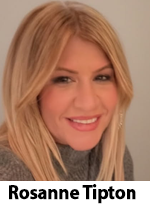 Radio Networks names two media sales pros to the organization. Rosanne Tipton joins Key-United as VP, sales and brand partnerships, and
Radio Networks names two media sales pros to the organization. Rosanne Tipton joins Key-United as VP, sales and brand partnerships, and 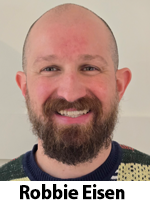 Robbie Eisen, joins as director of strategic research and planning. Key-United president of sales Ron Russo, says, “We’re absolutely thrilled to welcome both Rosanne and Robbie to the sales organization. Their energy, drive, and passion for building meaningful relationships perfectly align with our commitment to service and partnership. We’re confident they will make an immediate impact and accelerate the outstanding results our agency and client partners have come to expect from Key-United.”
Robbie Eisen, joins as director of strategic research and planning. Key-United president of sales Ron Russo, says, “We’re absolutely thrilled to welcome both Rosanne and Robbie to the sales organization. Their energy, drive, and passion for building meaningful relationships perfectly align with our commitment to service and partnership. We’re confident they will make an immediate impact and accelerate the outstanding results our agency and client partners have come to expect from Key-United.”


 revenue increased $47.7 million, or 14.1%, driven primarily by continuing increases in demand for digital and podcast advertising, as well as increased non-cash trade revenue resulting from strategic marketing initiatives. Multiplatform Group revenue decreased $19.2 million, or 2.8%, primarily resulting from lower political revenues, as 2024 was a presidential election year, as well as a decrease in broadcast advertising in connection with continued uncertain market conditions.
revenue increased $47.7 million, or 14.1%, driven primarily by continuing increases in demand for digital and podcast advertising, as well as increased non-cash trade revenue resulting from strategic marketing initiatives. Multiplatform Group revenue decreased $19.2 million, or 2.8%, primarily resulting from lower political revenues, as 2024 was a presidential election year, as well as a decrease in broadcast advertising in connection with continued uncertain market conditions.
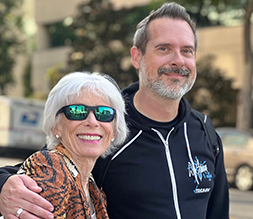 program audio, and vice president of operations roles. Take On The Day CEO Ron Hartenbaum says, “Dan has been critical to the on-going success of the radio program, podcast, live events, and pushing the growth of the video product to new levels of engagement. His ability to get things done is simply amazing.” Brady comments, “I’m humbled to be recognized in this elevated role by the managing partners and more importantly Dr. Laura as we continue to propel her legendary brand. Continuing to work with our partners at SiriusXM and their team in this new capacity is a true honor.”
program audio, and vice president of operations roles. Take On The Day CEO Ron Hartenbaum says, “Dan has been critical to the on-going success of the radio program, podcast, live events, and pushing the growth of the video product to new levels of engagement. His ability to get things done is simply amazing.” Brady comments, “I’m humbled to be recognized in this elevated role by the managing partners and more importantly Dr. Laura as we continue to propel her legendary brand. Continuing to work with our partners at SiriusXM and their team in this new capacity is a true honor.”
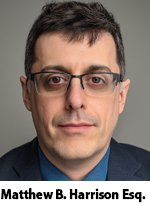 AI is now embedded in the modern newsroom. Not as a headline, not as a novelty, but as infrastructure. It drafts outlines, summarizes complex reporting, surfaces background details, and accelerates prep for live conversations. For media creators operating under relentless deadlines, that efficiency is not theoretical. It is practical and daily.
AI is now embedded in the modern newsroom. Not as a headline, not as a novelty, but as infrastructure. It drafts outlines, summarizes complex reporting, surfaces background details, and accelerates prep for live conversations. For media creators operating under relentless deadlines, that efficiency is not theoretical. It is practical and daily.
 Tuesday, March 10 and culminating with the championship game broadcast on Sunday, March 15. “We cannot wait for tip-off,” says Robert Blum, general manager of Compass Media Networks/Sports. “With the expansion of the Big Ten Tournament the six days will be packed with extremely compelling games that will help power the ratings of our affiliates and dazzle our audience.”
Tuesday, March 10 and culminating with the championship game broadcast on Sunday, March 15. “We cannot wait for tip-off,” says Robert Blum, general manager of Compass Media Networks/Sports. “With the expansion of the Big Ten Tournament the six days will be packed with extremely compelling games that will help power the ratings of our affiliates and dazzle our audience.”
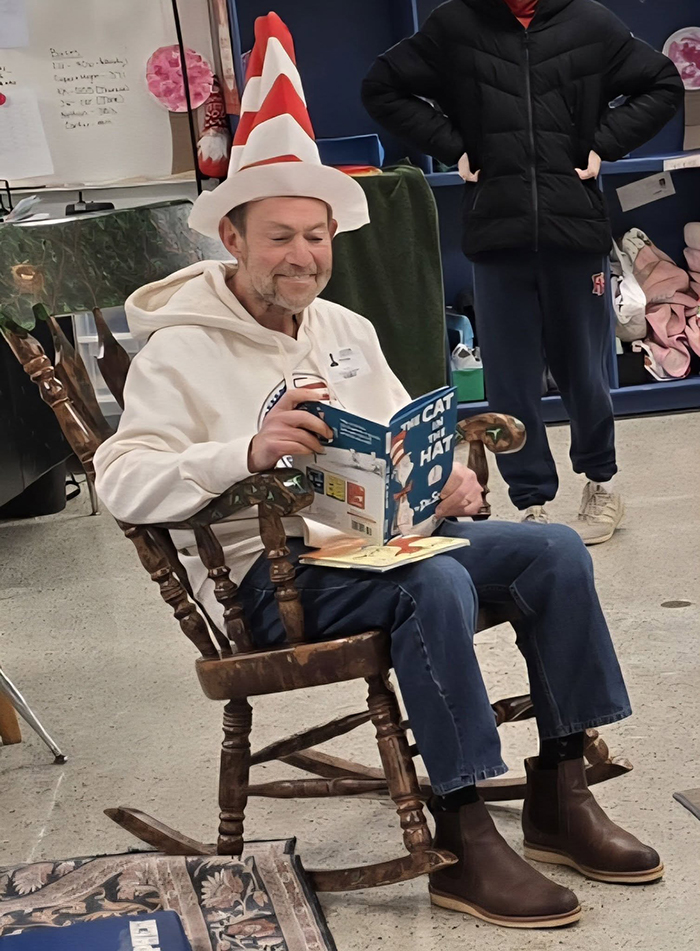


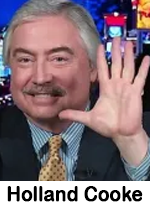 Your prospect – or, worse, an existing advertiser with cold feet – says “We tried radio. It didn’t work.” Often, the copy is the culprit, because it’s inside-out.
Your prospect – or, worse, an existing advertiser with cold feet – says “We tried radio. It didn’t work.” Often, the copy is the culprit, because it’s inside-out.
 provides important benchmark measures for usage and behavior around streaming audio, podcasting, radio, smart audio, social media, and debuting this year, never-before-seen data on AI usage. Annual results and trending data from The Infinite Dial are relied upon by its audience of content producers, media companies, agencies, and the financial community.” The webinar will feature Edison vice president of research Megan Lazovick with special guest James Cridland, editor of Podnews.
provides important benchmark measures for usage and behavior around streaming audio, podcasting, radio, smart audio, social media, and debuting this year, never-before-seen data on AI usage. Annual results and trending data from The Infinite Dial are relied upon by its audience of content producers, media companies, agencies, and the financial community.” The webinar will feature Edison vice president of research Megan Lazovick with special guest James Cridland, editor of Podnews. eight stations in Minnesota. The second deal transfers 17 signals in a number of small markets in the state of Missouri to Carter Media Too, LLC., a Carrollton, Missouri‑based limited liability company led by the Carter Media family. Carter Media Too also operates three radio stations in Missouri plus the streaming platform, MidVid.com. Exclusive broker Kalil & Co says Miles and Michael Carter expressed their enthusiasm for expanding the organization’s footprint and restoring a strong local presence in news, weather, sports, and agriculture.
eight stations in Minnesota. The second deal transfers 17 signals in a number of small markets in the state of Missouri to Carter Media Too, LLC., a Carrollton, Missouri‑based limited liability company led by the Carter Media family. Carter Media Too also operates three radio stations in Missouri plus the streaming platform, MidVid.com. Exclusive broker Kalil & Co says Miles and Michael Carter expressed their enthusiasm for expanding the organization’s footprint and restoring a strong local presence in news, weather, sports, and agriculture.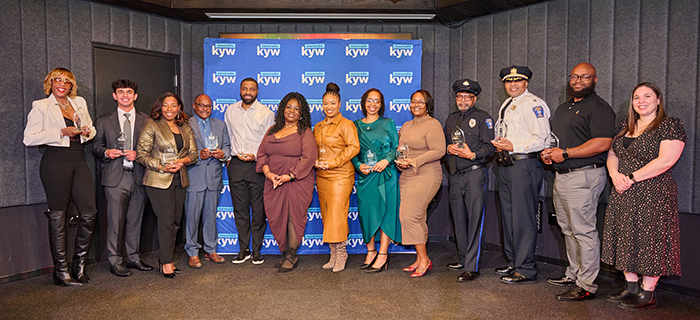
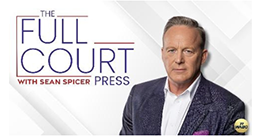 Station owner John Catsimatidis says, “Big name personalities define WABC Radio. Sean is a powerful addition to our Sunday lineup and another example of WABC’s unmatched ability to attract major talent and deliver must-hear talk. The show is going to be fast, fearless, and honest, with smart conversation, sharp opinion, and honest discussion about the stories driving the country.” Spicer comments, “WABC Radio doesn’t whisper, it leads! It is one of the most iconic and influential radio stations in the U.S. WABC Radio listeners expect truth, energy, and authenticity, and that’s exactly what I’m going to give them. I couldn’t be more excited to join the incredible 77WABC lineup.”
Station owner John Catsimatidis says, “Big name personalities define WABC Radio. Sean is a powerful addition to our Sunday lineup and another example of WABC’s unmatched ability to attract major talent and deliver must-hear talk. The show is going to be fast, fearless, and honest, with smart conversation, sharp opinion, and honest discussion about the stories driving the country.” Spicer comments, “WABC Radio doesn’t whisper, it leads! It is one of the most iconic and influential radio stations in the U.S. WABC Radio listeners expect truth, energy, and authenticity, and that’s exactly what I’m going to give them. I couldn’t be more excited to join the incredible 77WABC lineup.” They wanted WOW but those calls were taken. Still the station was known as WOW and boasted that Johnny Carson started his broadcast career there. The station took the calls KXSP in 2005 and was broadcasting a sports talk format using ESPN content. SummitMedia sold the station’s tower land, prompting the station’s sign-off.
They wanted WOW but those calls were taken. Still the station was known as WOW and boasted that Johnny Carson started his broadcast career there. The station took the calls KXSP in 2005 and was broadcasting a sports talk format using ESPN content. SummitMedia sold the station’s tower land, prompting the station’s sign-off. 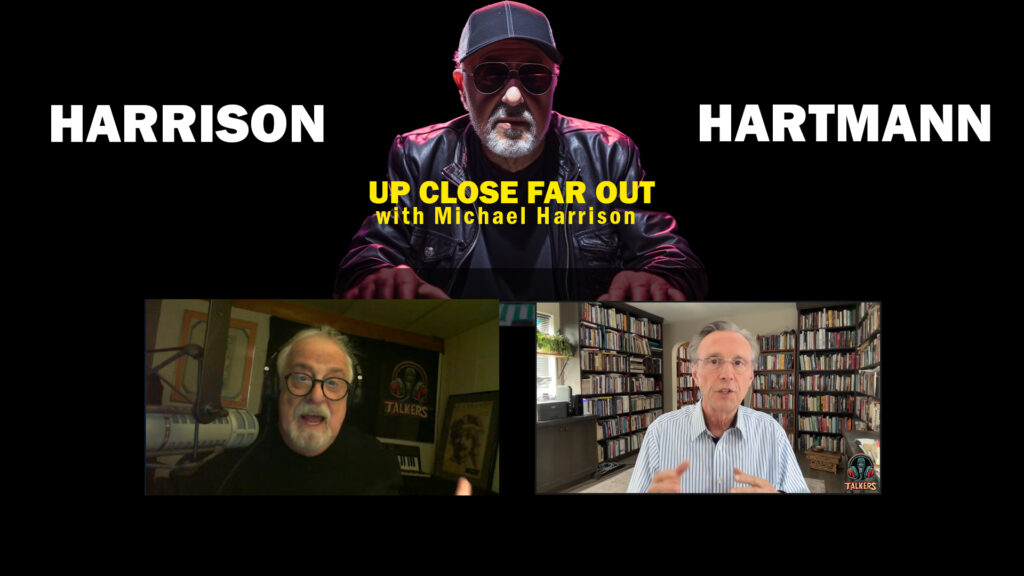
 strength of the video podcast and podcast clips, while “The Joe Rogan Experience” is #2 with consumption split almost evenly between audio and a combination of video podcast and podcast clips. Perhaps not surprisingly, NPR’s “NPR News Now” (#4) consumption came primarily from audio with about 20% coming from podcast clips. Candace Owens’ “Candace” leapt 71 places to finish the January period at #10. Her program’s consumption was primarily a split between video podcast and podcast clips.
strength of the video podcast and podcast clips, while “The Joe Rogan Experience” is #2 with consumption split almost evenly between audio and a combination of video podcast and podcast clips. Perhaps not surprisingly, NPR’s “NPR News Now” (#4) consumption came primarily from audio with about 20% coming from podcast clips. Candace Owens’ “Candace” leapt 71 places to finish the January period at #10. Her program’s consumption was primarily a split between video podcast and podcast clips.  posts remain unchanged – iHeart Audience Networks’ “Stuff You Should Know” at #1 and Audacy Podcast Network’s “48 Hours.” Salem Podcast Network’s “The Charlie Kirk Show” falls only one spot to #4. Other noteworthy shows include iHeart Audience Network’s “The Clay Travis and Buck Sexton Show” rises on place to #10 and Audioboom’s “The Bulwark Takes” climbs nine places to #21.
posts remain unchanged – iHeart Audience Networks’ “Stuff You Should Know” at #1 and Audacy Podcast Network’s “48 Hours.” Salem Podcast Network’s “The Charlie Kirk Show” falls only one spot to #4. Other noteworthy shows include iHeart Audience Network’s “The Clay Travis and Buck Sexton Show” rises on place to #10 and Audioboom’s “The Bulwark Takes” climbs nine places to #21.